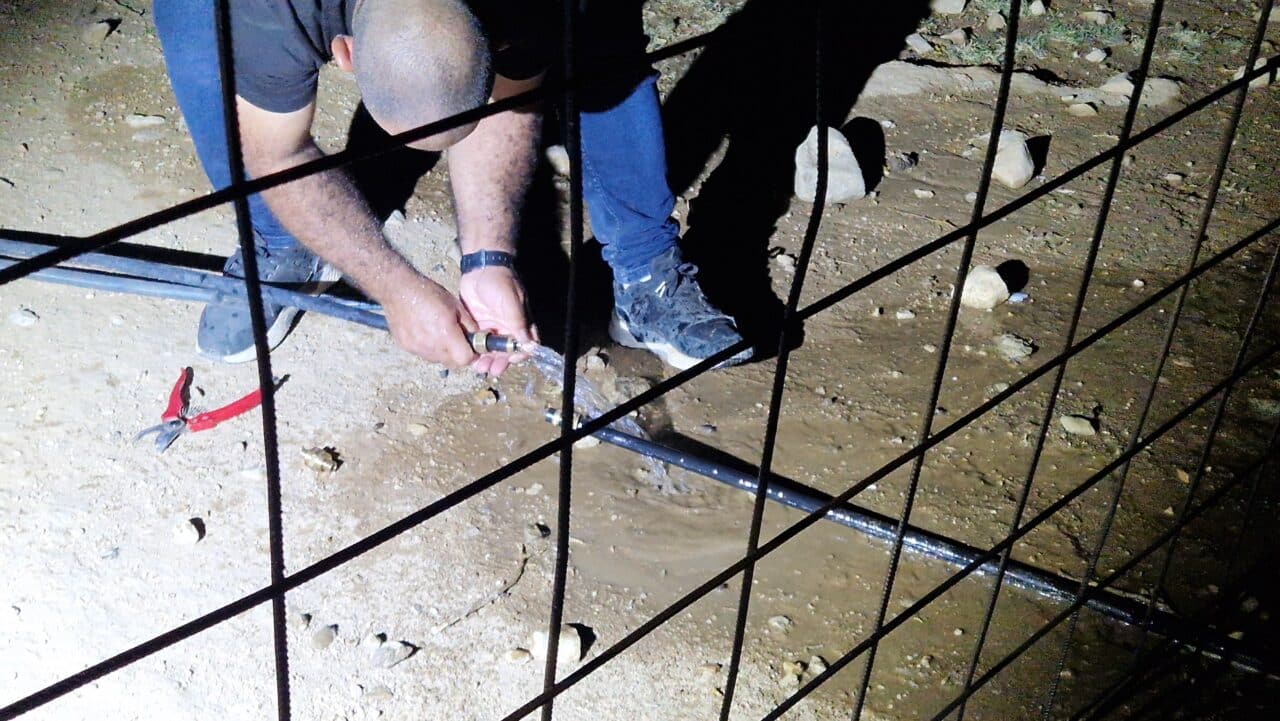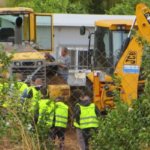Jordan Valley residents suffer without water
JERICHO (Ma’an News) Saturday 28/08/2010
The daily trip taken by U’dai Ka’abneh and his siblings to find water tells the reality of life in summer for residents of Al-Jiftlik in the Jordan Valley.
U’dai drags a wooden box on four small wheels, a makeshift cart he designed to help his family bring water to their sheep.
With his three siblings, U’dai walks for hundreds of meters on dirt roads to reach the nearest water pipe line to fill plastic bottles with water.
A distinctively clever boy, he has the eyes of a cautious eagle, always watching over his siblings. Traffic accidents caused by settlers are common along the road which stretches from the Jordan Valley to Nablus. U’dai also looks out for reptiles, and makes sure his brothers and sisters do not burn under the blazing desert sun.
“We live in a cave on a hilltop that overlooks the main road, we have no water or electricity,” U’dai said, adding that he left school after completing his fourth grade to help his family.
Um Salah, a local woman in her fifties, said her family had not received water in four months, “in an area where we need water every hour.” She had been forced to buy salty water tanks to provide for her family and her sheep, and wondered if others would leave their air conditioners behind and “live with us for one day” in the heat without water.
Head of the village council Abed Ar-Rahman Kassab said “We have a real problem. We appealed more than once to all of the parties and we listened to many promises, but nothing has been done. It is left to the residents to pay their accumulated debts to the Ministry of Finance for water and other services.”
The Israeli water company Mekorot only provides 27 cubic meters of water each day, which is only enough for one-third of the village’s 5,000 residents, Ar-Rahman Kassab said, adding that the village council is trying to find practical solutions for the water crisis.
Meanwhile, Mahmoud Allan Ad-Damen, a farmer in his eighties, is refusing to wait for solutions. In 1987, he dug an underground well with his own money, which produced 100 cubic meters of water daily. The supply dropped by half under the Israeli policy of digging deeper wells in surrounding settlements without regard for Palestinian farmers in the area, he said
Ad-Damen blamed the Oslo Accords for the water crisis in the village and across the Jordan Valley. The farmer allowed residents to use his well for free to provide for their families and their sheep.
Village resident Abu Al-A’bed said that if the government wants Jordan Valley residents to keep their resolve and stay on their land, they should provide water, adding that “We are here before others and we have to be steadfast because this is our land.”


